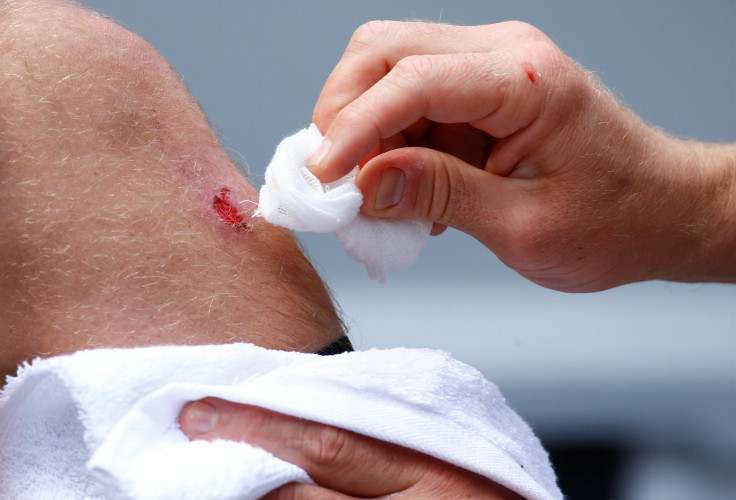Australian Teenager Files Petition To Increase Funding For Flesh-Eating Ulcer Research

An Australian teenager has started a petition, appealing the federal government to increase the funds allotted to the research of Buruli ulcer, an infection caused by a "flesh-eating" bacteria that is fast becoming an epidemic in Victoria, Australia.
Ella Crofts, 13, who is recovering from the disease for months now, has appealed to the authorities to look into the reasons why cases of the infection caused by bacterium Mycobacterium ulcerans have gone rampant in her hometown.
There have been 159 people infected by the bacteria so far this year, which is three times the number of cases recorded back in 2014.
"Why are the numbers in Victoria increasing so rapidly? Why is it moving? It used to be common on the Bellarine peninsula, now it's mostly on the Mornington Peninsula," she wrote in her petition.
The lack of information about how it is contracted and how to prevent it, adds to the growing concern of doctors, who are tending to the patients with the infection.
"The bacteria gets under the skin and slowly eats its way through the skin and the tissue underneath a limb until it's treated,” Daniel O'Brien, associate professor at the Geelong and Royal Melbourne hospitals, told the BBC. “The longer you leave it the worse it gets, it's a progressive, destructive infection."
The infection, also known as Mycobacterium Ulcerans disease, is typically contracted outdoors. The bacterium causing it emits toxins that destroy skin cells, blood vessels and fat under the skin. While some doctors believe that the disease spreads through natural bacteria present in certain kinds of soils, others are of the opinion that it is carried by mosquitoes.
Croft, from the town of Tyabb, has subjected her knee to three surgeries and powerful antibiotics over half a year, but to no avail.
"Slowly it got worse, with my knee becoming swollen and inflamed, until one day, the skin started breaking down," she said in a statement. "I've had six months of quality medical care and still have not recovered."
Even diagnosis of the disease is tricky. When Crofts went in the hospital with a sore knee and the doctors conducted dry swabs on her wound, they were unable to detect any signs of the bacteria on it. Without proper care from an early stage, the soreness soon deteriorated into an open wound.
Anthony, Fleming, a builder who lives in Langwarrin on the fringe of the Mornington Peninsula, also reported a similar case a few days earlier.
He too has been suffering from the disease for the last two months. The infection started off as a dot and soon grew to the size of a 10-cent coin.
"It was getting nastier every time I looked at it," Fleming said, ABC reported. “It went for about a month, two months and I started getting concerned. My local GP put me on antibiotics. They didn't work."
Fleming was eventually referred to a specialist, who identified the infection and put him on a multi-week antibiotics course.
Victoria's Department of Health is currently studying local possum feces to see if they can detect traces of the bacteria. They department is currently in need of funding to look into the possibility of mosquitoes spreading the disease. It is also working with the Royal Australian College of General Practitioners to prepare guidelines that can assist doctors in detecting the disease faster.
"While Buruli is a rare disease in global terms, we are in the middle of an epidemic on the Mornington Peninsula,” professor Tim Stinear, of the Peter Doherty Institute for Infection and Immunity, told the Australian Science Media Centre.
© Copyright IBTimes 2024. All rights reserved.






















